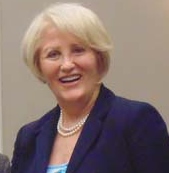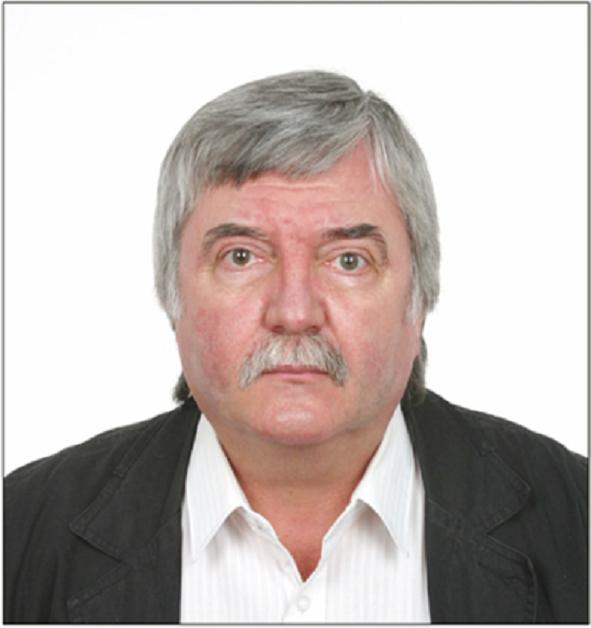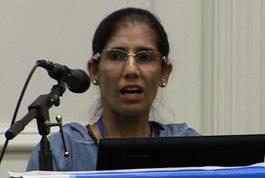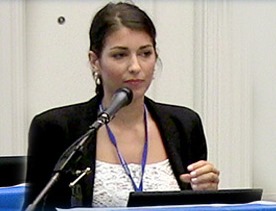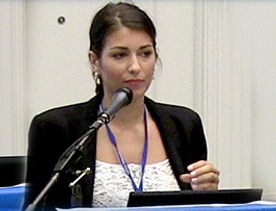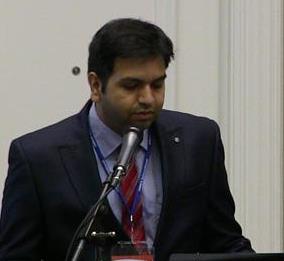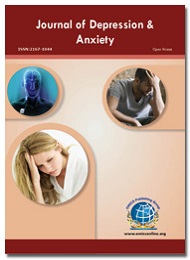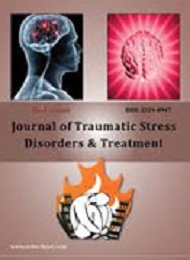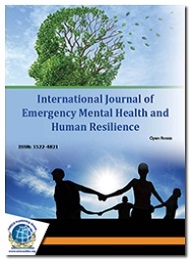Theme: Leading Innovations and Approaches towards Stress Management, Anxiety and Depression
Stress 2017
On behalf of the Organizing Committee, it is with great pleasure that we welcome you to the official website of the 3rd International Conference on Depression, Anxiety and Stress Management during June 21-22, 2017 at London, UK.
Accreditation Statement
This activity has been planned and implemented in accordance with the accreditation requirements and policies of the Accreditation Council for Continuing Medical Education (ACCME) through the joint providership of PeerPoint Medical Education Institute and the Conference Series. PeerPoint Medical Education Institute is accredited by the ACCME to provide continuing medical education for physicians.
PeerPoint Medical Education Institute designates the live format for this educational activity for a maximum of 9.75 AMA PRA Category 1 Credits™. Physicians should only claim credit commensurate with the extent of their participation in the activity.
Track 1: Post-traumatic Stress Disorder
Post-traumatic Stress Disorder is a mental disorder that develops after a person is exposed to a traumatic event, such as sexual assault, warfare or other threats on a person's life. Symptoms may even include disturbing thoughts, feelings or dreams related to particular events, physical or mental distress to trauma-related cues. These symptoms will last for more than a month after the event. Young children are less likely to show distress but may express their memories through play. Those with PTSD are at a higher risk of suicide. Persons who are considered at risk include for example, victims of natural disasters, combat military personnel and victims of any violent crime.
Related Stress Conference | Depression Conference | Anxiety Disorder Conference | Psychiatry Conference
15th World Congress on Applied Psychology May 15-16, 2017 Munich, Germany: 17th Global Summit on Cognitive Behavioural Sciences May 1-3, 2017 Toronto, Canada: 18th World Congress on Positive Psychology and Behavioural Sciences, May 1-3, 2017, Toronto, Canada: 3rd International Conference on Mental Health & Human Resilience, May 11-12, 2017, Rome, Italy: 19th Global Congress on Pediatric & Child Psychiatry, July 12-13, 2017, Chicago, USA: 5th International Child and Adult Behavioral Health Conference 2017, January 12-14, United Arab Emirates: Mental Health and Addiction Medicine 2017, Feb 25 - Mar 4 : International Congress on Dual Disorders (ICDD 2017), March 23-26, Spain:
Related Societies : American Psychiatric Association, American Psychological Association, Academy of Eating Disorders, Affiliated Psychiatric Services, American Academy of Child and Adolescent Psychiatry, American Academy of Clinical Neuro Psychology, American Anorexia Bulimia Association, American Board of Forensic Psychology, American Board of Professional Psychology
Track 2: Anxiety Disorders
Anxiety is a combination of several disorders that includes nervousness, fear, apprehension and worrying. These disorders affect our feelings and behavior. Anxiety is a worrying about future events and fear is a reaction to currently occurring events. Physical symptoms that are caused due to these feelings are shakiness and fast heart rate. There are number of anxiety disorders which include generalized anxiety disorder, social anxiety disorder, specific phobia, separation anxiety disorder, panic disorder and agoraphobia. The cause of anxiety disorders includes a combination of genetic and environmental factors. The disorder differs by what symptoms are present in an individual. People usually have more than one anxiety disorder.
Related Stress Conference | Depression Conference | Anxiety Disorder Conference | Psychiatry Conference
21st International Conference on Adolescent Medicine & Child Psychology, Sep 28-29, 2017, Berlin, Germany: International Conference on Forensic Science and Psychology, Oct 2-3, 2017, London, UK: International Conference on Psychiatry & Psychosomatic Medicine, Oct 5-6, 2017, London, UK: 22nd World Summit on Psychology, Psychiatry & Psychotherapy, Oct 19-21, 2017, San Francisco, USA: Annual Meeting of the American Association for Geriatric Psychiatry (AAGP 2017), March 24-27, United States: 25th European Congress of Psychiatry (EPA 2017), April 1-4, Florence, Italy: Psychiatric Nursing 2017, April 26-29, Gaylord Opryland Nashville, TN, United States: 19th Annual Conference of the International Society for Bipolar Disorders 2017, May 4-7, United States: Topics in Mental Health 2017, May 20-27, United States: Psychotherapy, Psychiatry and Counselling in the Digital Age 2017, June 23-30, United States:
Related Societies : American Psychiatric Association, American Psychological Association, Academy of Eating Disorders, Affiliated Psychiatric Services, American Academy of Child and Adolescent Psychiatry, American Academy of Clinical Neuro Psychology, American Anorexia Bulimia Association, American Board of Forensic Psychology, American Board of Professional Psychology
Track 3: Depression
Depression is a low mood that lasts for a long time, and affects your everyday life. People with a depressive mood can feel sad, anxious, helpless, hopeless, worthless, irritable, angry, ashamed, restless or guilty. They may even lose interest in activities that were once pleasurable to them, experience loss of appetite, have problems concentrating remembering some details or making decisions, experiencing relationship difficulties and may scrutinize. Problems like Insomnia, fatigue, aches, excessive sleeping, pains, digestive problems or reduced energy may also present. Depression can even mean just being in low spirits. It doesn’t stop an individual leading a normal life but makes everything harder to do and seem less worthwhile. At its most severe, depression can be life threatening because it can make a person feel suicidal or simply give up the will to live.
Related Stress Conference | Depression Conference | Anxiety Disorder Conference | Psychiatry Conference
15th World Congress on Applied Psychology May 15-16, 2017 Berlin, Germany: 17th Global Summit on Cognitive Behavioural Sciences May 1-3, 2017 Toronto, Canada: 21st International Conference on Adolescent Medicine & Child Psychology, Sep 28-29, 2017, Berlin, Germany: 18th World Congress on Positive Psychology and Behavioural Sciences, May 1-3, 2017, Toronto, Canada: International Conference on Forensic Science and Psychology, Oct 2-3, 2017, London, UK: 3rd International Conference on Mental Health & Human Resilience, May 11-12, 2017, Rome, Italy: International Conference on Psychiatry & Psychosomatic Medicine, Oct 5-6, 2017, London, UK: 5th International Child and Adult Behavioral Health Conference 2017, January 12-14, United Arab Emirates: Psychiatric Nursing 2017, April 26-29, Gaylord Opryland Nashville, TN, United States: Topics in Mental Health 2017, May 20-27, United States: Psychotherapy, Psychiatry and Counselling in the Digital Age 2017, June 23-30, United States:
Related Societies : American Psychiatric Association, American Psychological Association, Academy of Eating Disorders, Affiliated Psychiatric Services, American Academy of Child and Adolescent Psychiatry, American Academy of Clinical Neuro Psychology, American Anorexia Bulimia Association, American Board of Forensic Psychology, American Board of Professional Psychology
Track 4: Schizophrenia and Bipolar Disorder
Schizophrenia is characterized as a mental disorder or abnormal social behavior and failure to understand what is fact. Common symptoms include delusions or confused thinking, false beliefs, hearing voices, wanting to avoid people, reduced social engagement and lack of motivation. People with schizophrenia usually have additional mental health problems like anxiety disorders, substance use disorders or major depressive illness. Symptoms typically come on gradually, begin in childhood, adulthood and last a long time. Bipolar disorder is also known as manic depression; it is a mental disorder with periods of elevated moods and depression. The elevated mood is significant and it is also known as mania or hypomania, depending on its severity or symptoms of psychosis that are present. During mania an individual feels abnormally energetic, irritable or happy. Individuals often make poor thought out decisions with little regard to the situations. The need for sleep is usually reduced in manic phases.
Related Stress Conference | Depression Conference | Anxiety Disorder Conference | Psychiatry Conference
19th Global Congress on Pediatric & Child Psychiatry, July 12-13, 2017, Chicago, USA: International Conference on Psychiatry & Psychosomatic Medicine, Oct 5-6, 2017, London, UK: 22nd World Summit on Psychology, Psychiatry & Psychotherapy, Oct 19-21, 2017, San Francisco, USA: Annual Meeting of the American Association for Geriatric Psychiatry (AAGP 2017), March 24-27, United States: 25th European Congress of Psychiatry (EPA 2017), April 1-4, Florence, Italy: Psychiatric Nursing 2017, April 26-29, Gaylord Opryland Nashville, TN, United States: 5th International Child and Adult Behavioral Health Conference 2017, January 12-14, United Arab Emirates: Mental Health and Addiction Medicine 2017, Feb 25 - Mar 4 : International Congress on Dual Disorders (ICDD 2017), March 23-26, Spain:
Related Societies : American Psychiatric Association, American Psychological Association, Academy of Eating Disorders, Affiliated Psychiatric Services, American Academy of Child and Adolescent Psychiatry, American Academy of Clinical Neuro Psychology, American Anorexia Bulimia Association, American Board of Forensic Psychology, American Board of Professional Psychology
Track 5: Stress and Insomnia
Stress can be explained as an individual’s body’s way of responding to any kind of threat or demand or Stress is a reaction to a stimulus that disturbs our physical and mental equilibrium. . When an individual feel threatened, nervous system responds by releasing a number of stress hormones including adrenaline and cortisol, which rouse the body for emergency reaction. In such cases heart pounds faster, blood pressure rises, muscles tighten, senses become sharper and breath quickens. These physical changes can increase an individual’s strength and stamina, speed their reaction time, and enhance their focus. This is even known as the “fight or flight” response or mobilization stress response and it is yours body’s way of protecting you.
Insomnia is also known as sleeplessness, it is a sleep disorder where people have trouble in sleeping. They may have difficulty in falling asleep or staying asleep as long as they desire. Insomnia is followed by daytime sleepiness, irritability, low energy and depressive mood. It results in an increased risk of motor vehicle collisions, as well as problems like focusing and learning. Insomnia can be short term, lasting for days or weeks or long term or lasting more than a month.
Related Stress Conference | Depression Conference | Anxiety Disorder Conference | Psychiatry Conference
18th World Congress on Positive Psychology and Behavioural Sciences, May 1-3, 2017, Toronto, Canada: 3rd International Conference on Mental Health & Human Resilience, May 11-12, 2017, Rome, Italy: 19th Global Congress on Pediatric & Child Psychiatry, July 12-13, 2017, Chicago, USA: Annual Meeting of the American Association for Geriatric Psychiatry (AAGP 2017), March 24-27, United States: 25th European Congress of Psychiatry (EPA 2017), April 1-4, Florence, Italy: Psychiatric Nursing 2017, April 26-29, Gaylord Opryland Nashville, TN, United States: 19th Annual Conference of the International Society for Bipolar Disorders 2017, May 4-7, United States: Topics in Mental Health 2017, May 20-27, United States: Psychotherapy, Psychiatry and Counselling in the Digital Age 2017, June 23-30, United States:
Related Societies : American Psychiatric Association, American Psychological Association, Academy of Eating Disorders, Affiliated Psychiatric Services, American Academy of Child and Adolescent Psychiatry, American Academy of Clinical Neuro Psychology, American Anorexia Bulimia Association, American Board of Forensic Psychology, American Board of Professional Psychology
Track 6: Stress Related Disorders
Stress doesn't only make a person feel awful emotionally. It can also exacerbate about any health condition you can think of. Studies have found several health problems related to stress. Stress seems to be worsened or increase the risk of conditions like heart disease, obesity, Alzheimer's disease, headache, diabetes, depression, accelerated aging, gastrointestinal problems, asthma and premature death.
Related Stress Conference | Depression Conference | Anxiety Disorder Conference | Psychiatry Conference
21st International Conference on Adolescent Medicine & Child Psychology, Sep 28-29, 2017, Berlin, Germany: International Conference on Forensic Science and Psychology, Oct 2-3, 2017, London, UK: International Conference on Psychiatry & Psychosomatic Medicine, Oct 5-6, 2017, London, UK: 22nd World Summit on Psychology, Psychiatry & Psychotherapy, Oct 19-21, 2017, San Francisco, USA: Annual Meeting of the American Association for Geriatric Psychiatry (AAGP 2017), March 24-27, United States: 25th European Congress of Psychiatry (EPA 2017), April 1-4, Florence, Italy: Psychiatric Nursing 2017, April 26-29, Gaylord Opryland Nashville, TN, United States: 19th Annual Conference of the International Society for Bipolar Disorders 2017, May 4-7, United States: Topics in Mental Health 2017, May 20-27, United States: Psychotherapy, Psychiatry and Counselling in the Digital Age 2017, June 23-30, United States:
Related Societies : American Psychiatric Association, American Psychological Association, Academy of Eating Disorders, Affiliated Psychiatric Services, American Academy of Child and Adolescent Psychiatry, American Academy of Clinical Neuro Psychology, American Anorexia Bulimia Association, American Board of Forensic Psychology, American Board of Professional Psychology
Track 7: Child and Adolescent Mood Disorders
Mood disorders are characterized as a group of mental health problems that includes all types of depression and bipolar disorder. Mood disorders are sometimes termed as affective disorders. There are certain chemicals in the brain that are responsible for positive moods. Some chemicals in the brain (neurotransmitters) control the brain chemicals that affect mood of a person. Mood disorders may be caused by a chemical imbalance that occurs in brain. This imbalance can happen on its own or along with environmental factors like unexpected life events or long-lasting stress. In children it is chronically irritable and experiences frequent, severe temper outbursts. In adults the disorders like hallucinations and delusions can be seen.
Related Stress Conference | Depression Conference | Anxiety Disorder Conference | Psychiatry Conference
18th World Congress on Positive Psychology and Behavioural Sciences, May 1-3, 2017, Toronto, Canada: 3rd International Conference on Mental Health & Human Resilience, May 11-12, 2017, Rome, Italy: 19th Global Congress on Pediatric & Child Psychiatry, July 12-13, 2017, Chicago, USA: Annual Meeting of the American Association for Geriatric Psychiatry (AAGP 2017), March 24-27, United States: 25th European Congress of Psychiatry (EPA 2017), April 1-4, Florence, Italy: Psychiatric Nursing 2017, April 26-29, Gaylord Opryland Nashville, TN, United States: 19th Annual Conference of the International Society for Bipolar Disorders 2017, May 4-7, United States: Topics in Mental Health 2017, May 20-27, United States: Psychotherapy, Psychiatry and Counselling in the Digital Age 2017, June 23-30, United States:
Related Societies : American Psychiatric Association, American Psychological Association, Academy of Eating Disorders, Affiliated Psychiatric Services, American Academy of Child and Adolescent Psychiatry, American Academy of Clinical Neuro Psychology, American Anorexia Bulimia Association, American Board of Forensic Psychology, American Board of Professional Psychology
Track 8: Personality Disorder
The word ‘personality’ is referred to the pattern of thoughts, behavior and feelings and that makes each of us individuals that we are. These affect the way we feel, think and behave towards others and ourselves. We do not always feel, think and behave in exactly the same way; it depends on the situation we are, the people with us and many other things. But we tend to behave in fairly predictable ways. Personality disorders are a type of mental health problem where an individual’s beliefs, attitudes and behaviours cause longstanding problems in life. An individual’s experience of personality disorder is unique to you. However, people may often experience difficulties in how to think about themselves and others. Personality disorder can show itself in many different ways.
Related Stress Conference | Depression Conference | Anxiety Disorder Conference | Psychiatry Conference
15th World Congress on Applied Psychology May 15-16, 2017 Berlin, Germany: 17th Global Summit on Cognitive Behavioural Sciences May 1-3, 2017 Toronto, Canada: 18th World Congress on Positive Psychology and Behavioural Sciences, May 1-3, 2017, Toronto, Canada: 3rd International Conference on Mental Health & Human Resilience, May 11-12, 2017, Rome, Italy: 19th Global Congress on Pediatric & Child Psychiatry, July 12-13, 2017, Chicago, USA: 5th International Child and Adult Behavioral Health Conference 2017, January 12-14, United Arab Emirates: Mental Health and Addiction Medicine 2017, Feb 25 - Mar 4 : International Congress on Dual Disorders (ICDD 2017), March 23-26, Spain:
Related Societies : American Psychiatric Association, American Psychological Association, Academy of Eating Disorders, Affiliated Psychiatric Services, American Academy of Child and Adolescent Psychiatry, American Academy of Clinical Neuro Psychology, American Anorexia Bulimia Association, American Board of Forensic Psychology, American Board of Professional Psychology
Track 9: Panic Disorder and Trauma
Panic disorder is an anxiety disorder that is characterized by sudden attacks of panic and fear. Panic attacks may occur suddenly without a known reason, but more frequently they are triggered by fear producing thoughts or events. Symptoms of panic attacks include increased heartbeat, strange chest sensations, dizziness, shortness of breath and anxiousness. Panic disorder is believed to be an abnormal activation of the body's hormonal system. Treatment includes cognitive behavioural therapy, using exposure to effect symptom reduction and use of medication. Trauma is a disordered psychical or behavioral state resulting from severe emotional, mental stress or physical injury. Traumatic event leaves psychological symptoms long after any physical injuries have healed. It usually occurs after extremely stressful event, such as natural disasters, wartime combat or sexual or physical abuse; its symptoms even include depression, flashbacks, anxiety and recurring nightmares.
Related Stress Conference | Depression Conference | Anxiety Disorder Conference | Psychiatry Conference
19th Global Congress on Pediatric & Child Psychiatry, July 12-13, 2017, Chicago, USA: International Conference on Psychiatry & Psychosomatic Medicine, Oct 5-6, 2017, London, UK: 22nd World Summit on Psychology, Psychiatry & Psychotherapy, Oct 19-21, 2017, San Francisco, USA: Annual Meeting of the American Association for Geriatric Psychiatry (AAGP 2017), March 24-27, United States: 25th European Congress of Psychiatry (EPA 2017), April 1-4, Florence, Italy: Psychiatric Nursing 2017, April 26-29, Gaylord Opryland Nashville, TN, United States: 5th International Child and Adult Behavioral Health Conference 2017, January 12-14, United Arab Emirates: Mental Health and Addiction Medicine 2017, Feb 25 - Mar 4 : International Congress on Dual Disorders (ICDD 2017), March 23-26, Spain:
Related Societies : American Psychiatric Association, American Psychological Association, Academy of Eating Disorders, Affiliated Psychiatric Services, American Academy of Child and Adolescent Psychiatry, American Academy of Clinical Neuro Psychology, American Anorexia Bulimia Association, American Board of Forensic Psychology, American Board of Professional Psychology
Track 10: Yoga and Holistic Health
Yoga is a group of physical, mental, and spiritual practices or disciplines. Among the most well-known types of yoga are Hatha yoga and Raja yoga. Yoga is a technique of controlling the body and mind. Yoga is a meditative means of discovering dysfunctional perception and cognition, as well as overcoming it for release from suffering, inner peace and salvation. Yoga as described in the Yoga Sutras of Patanjali refers to Ashtanga yoga. Holistic Health is an approach to life. Rather than focusing on specific parts of the body or illness, this ancient approach towards health considers the whole person and how he/she interacts with his/her environment. It emphasizes the connection of body, mind and spirit.
Related Stress Conference | Depression Conference | Anxiety Disorder Conference | Psychiatry Conference
3rd International Conference on Mental Health & Human Resilience, May 11-12, 2017, Rome, Italy: 19th Global Congress on Pediatric & Child Psychiatry, July 12-13, 2017, Chicago, USA: 5th International Child and Adult Behavioral Health Conference 2017, January 12-14, United Arab Emirates: International Conference on Psychiatry & Psychosomatic Medicine, Oct 5-6, 2017, London, UK: 22nd World Summit on Psychology, Psychiatry & Psychotherapy, Oct 19-21, 2017, San Francisco, USA: Mental Health and Addiction Medicine 2017, Feb 25 - Mar 4 : International Congress on Dual Disorders (ICDD 2017), March 23-26, Spain:
Related Societies : American Psychiatric Association, American Psychological Association, Academy of Eating Disorders, Affiliated Psychiatric Services, American Academy of Child and Adolescent Psychiatry, American Academy of Clinical Neuro Psychology, American Anorexia Bulimia Association, American Board of Forensic Psychology, American Board of Professional Psychology
Track 11: Suicide and Prevention
Stress, depression and anxiety carry a high risk of suicide. More than 90% of people those who suicide has been diagnosed with illness such as clinical depression, and usually in combination with stress, anxiety or substance use disorders and other mental disorders. Suicide affects all age groups including children. Most of the people die by committing suicide than from automobile accidents. Most of the suicides are preventable but many who are at risk for attempting suicide never receives the treatment they need because of lack of access to care or lack of knowledge about their symptoms. Almost everyone who attempts suicide has symptoms that mental health treatment could relieve.
Related Stress Conference | Depression Conference | Anxiety Disorder Conference | Psychiatry Conference
21st International Conference on Adolescent Medicine & Child Psychology, Sep 28-29, 2017, Berlin, Germany: International Conference on Forensic Science and Psychology, Oct 2-3, 2017, London, UK: International Conference on Psychiatry & Psychosomatic Medicine, Oct 5-6, 2017, London, UK: 22nd World Summit on Psychology, Psychiatry & Psychotherapy, Oct 19-21, 2017, San Francisco, USA: Annual Meeting of the American Association for Geriatric Psychiatry (AAGP 2017), March 24-27, United States: 25th European Congress of Psychiatry (EPA 2017), April 1-4, Florence, Italy: Psychiatric Nursing 2017, April 26-29, Gaylord Opryland Nashville, TN, United States: 19th Annual Conference of the International Society for Bipolar Disorders 2017, May 4-7, United States: Topics in Mental Health 2017, May 20-27, United States: Psychotherapy, Psychiatry and Counselling in the Digital Age 2017, June 23-30, United States:
Related Societies : American Psychiatric Association, American Psychological Association, Academy of Eating Disorders, Affiliated Psychiatric Services, American Academy of Child and Adolescent Psychiatry, American Academy of Clinical Neuro Psychology, American Anorexia Bulimia Association, American Board of Forensic Psychology, American Board of Professional Psychology
Track 12: Sexual Abuse and Substance Use Disorders
Some people feel very scared, embarrassed, guilty or ashamed about reporting abuse. Some people blame themselves or believe that they deserve to be abused. Sexual abuse is a crime which can have a huge impact on health and well-being. Children having mental illness, physical disability or learning disability are more than twice as likely to report childhood sexual abuse. Childhood sexual abuse can happen in any community factors like poverty, homelessness and racism can increase the risk of sexual abuse. Substance use disorder also known as drug use disorder, it is a condition in which the use of one or more substances leads to a clinically significant impairment or distress. Substance use disorder refers to dependence or over use of a drug leading to effect individual’s mental and physical health. In 2013 drug use disorders resulted in 127,000 deaths up from 53,000 in 1990.
Related Stress Conference | Depression Conference | Anxiety Disorder Conference | Psychiatry Conference
15th World Congress on Applied Psychology May 15-16, 2017 Berlin, Germany: 17th Global Summit on Cognitive Behavioural Sciences May 1-3, 2017 Toronto, Canada: 18th World Congress on Positive Psychology and Behavioural Sciences, May 1-3, 2017, Toronto, Canada: 3rd International Conference on Mental Health & Human Resilience, May 11-12, 2017, Rome, Italy: 19th Global Congress on Pediatric & Child Psychiatry, July 12-13, 2017, Chicago, USA: 5th International Child and Adult Behavioral Health Conference 2017, January 12-14, United Arab Emirates: Mental Health and Addiction Medicine 2017, Feb 25 - Mar 4 : International Congress on Dual Disorders (ICDD 2017), March 23-26, Spain:
Related Societies : American Psychiatric Association, American Psychological Association, Academy of Eating Disorders, Affiliated Psychiatric Services, American Academy of Child and Adolescent Psychiatry, American Academy of Clinical Neuro Psychology, American Anorexia Bulimia Association, American Board of Forensic Psychology, American Board of Professional Psychology
Track 13: Phobia and its Treatment
Phobia is an irrational fear and avoidance of any situation or object even when there is no danger. Phobias are different from generalized anxiety disorders, because a phobia has a fear response which is identified with a specific cause. The fear may be irrational or unnecessary, but the person is unable to control the anxiety. Stimuli for phobia may be as varied as situations or everyday objects. To treat phobia the first preference is to consult a psychiatrist. Simple or specific phobias can be quite effectively treated with behaviour therapy.
Related Stress Conference | Depression Conference | Anxiety Disorder Conference | Psychiatry Conference
3rd International Conference on Mental Health & Human Resilience, May 11-12, 2017, Rome, Italy: 19th Global Congress on Pediatric & Child Psychiatry, July 12-13, 2017, Chicago, USA: Mental Health and Addiction Medicine 2017, Feb 25 - Mar 4: 5th International Child and Adult Behavioral Health Conference 2017, January 12-14, United Arab Emirates: International Conference on Psychiatry & Psychosomatic Medicine, Oct 5-6, 2017, London, UK: 22nd World Summit on Psychology, Psychiatry & Psychotherapy, Oct 19-21, 2017, San Francisco, USA: Mental Health and Addiction Medicine 2017, Feb 25 - Mar 4 : International Congress on Dual Disorders (ICDD 2017), March 23-26, Spain:
Related Societies : American Psychiatric Association, American Psychological Association, Academy of Eating Disorders, Affiliated Psychiatric Services, American Academy of Child and Adolescent Psychiatry, American Academy of Clinical Neuro Psychology, American Anorexia Bulimia Association, American Board of Forensic Psychology, American Board of Professional Psychology
Track 14: Work Stress
Workplace stress is the harmful emotional and physical responses that can happen when there is a conflict between job demands on employee and the amount of control that an employee has over meeting those demands. Generally the combination of high demands in job and low amount of control over the situation can lead to stress. Stress in the workplace may have many origins or come from one single event. But, it can have impact on both employees and employers alike. Fear of job redundancy, increased demands for overtime due to staff cutbacks and layoffs due to an uncertain economy act as negative stressors. The relentless requirement to work at optimum performance results in job dissatisfaction, reduced efficiency, employee turnover, illness and even death.
Related Stress Conference | Depression Conference | Anxiety Disorder Conference | Psychiatry Conference
21st International Conference on Adolescent Medicine & Child Psychology, Sep 28-29, 2017, Berlin, Germany: International Conference on Forensic Science and Psychology, Oct 2-3, 2017, London, UK: International Conference on Psychiatry & Psychosomatic Medicine, Oct 5-6, 2017, London, UK: 22nd World Summit on Psychology, Psychiatry & Psychotherapy, Oct 19-21, 2017, San Francisco, USA: Annual Meeting of the American Association for Geriatric Psychiatry (AAGP 2017), March 24-27, United States: 25th European Congress of Psychiatry (EPA 2017), April 1-4, Florence, Italy: Psychiatric Nursing 2017, April 26-29, Gaylord Opryland Nashville, TN, United States: 19th Annual Conference of the International Society for Bipolar Disorders 2017, May 4-7, United States: Topics in Mental Health 2017, May 20-27, United States: Psychotherapy, Psychiatry and Counseling in the Digital Age 2017, June 23-30, United States:
Related Societies : American Psychiatric Association, American Psychological Association, Academy of Eating Disorders, Affiliated Psychiatric Services, American Academy of Child and Adolescent Psychiatry, American Academy of Clinical Neuro Psychology, American Anorexia Bulimia Association, American Board of Forensic Psychology, American Board of Professional Psychology
Track 15: Stress Medication and Management
The number of health problems related to stress might be alarming, don't despair. Several studies suggest that stress management techniques will not only make feel better, but they might have many health benefits. For instance, one study of heart attack survivors found that taking a stress management class reduced their risks of second cardiac event by 74%. There's even some evidence that stress management will improve immunity. Still, many of us remain unaware about stress management. Stress management might seem likely to be a nice idea, but completely impossible. Though you may not be able to remove all stressful things from life, but an individual can change based on how he respond to them. That is what stress management is all about. To relieve stress medications like sedatives, antidepressants, beta blockers and nutrient supplements can be used.
Related Stress Conference | Depression Conference | Anxiety Disorder Conference | Psychiatry Conference
3rd International Conference on Mental Health & Human Resilience, May 11-12, 2017, Rome, Italy: 19th Global Congress on Pediatric & Child Psychiatry, July 12-13, 2017, Chicago, USA: 5th International Child and Adult Behavioral Health Conference 2017, January 12-14, United Arab Emirates: International Conference on Psychiatry & Psychosomatic Medicine, Oct 5-6, 2017, London, UK: 22nd World Summit on Psychology, Psychiatry & Psychotherapy, Oct 19-21, 2017, San Francisco, USA: Mental Health and Addiction Medicine 2017, Feb 25 - Mar 4 : International Congress on Dual Disorders (ICDD 2017), March 23-26, Spain:
Related Societies : American Psychiatric Association, American Psychological Association, Academy of Eating Disorders, Affiliated Psychiatric Services, American Academy of Child and Adolescent Psychiatry, American Academy of Clinical Neuro Psychology, American Anorexia Bulimia Association, American Board of Forensic Psychology, American Board of Professional Psychology
Track 16: Depression Treatment
Depression is a state of mind where a person feels discouraged, hopeless, unmotivated or uninterested in life. If these feelings last for more than two – three weeks then these feelings interfere with daily activities like caring for family, spending time with family and friends, going to office or school, then it is considered as a major depressive episode. Depression can be treated by Psychotherapy whereas Talk therapy is an extremely effective treatment for depression. Mostly three common methods are used in the treatment of depression which includes Interpersonal therapy, Cognitive behavioural therapy and Psychodynamic therapy. Depression medication may be most advertised treatment, but that doesn’t mean it is the most effective treatment because Antidepressant medications come with side effects and safety concerns and withdrawal can be very difficult.
Related Stress Conference | Depression Conference | Anxiety Disorder Conference | Psychiatry Conference
15th World Congress on Applied Psychology May 15-16, 2017 Berlin, Germany: 17th Global Summit on Cognitive Behavioural Sciences May 1-3, 2017 Toronto, Canada: 18th World Congress on Positive Psychology and Behavioral Sciences, May 1-3, 2017, Toronto, Canada: 3rd International Conference on Mental Health & Human Resilience, May 11-12, 2017, Rome, Italy: 19th Global Congress on Pediatric & Child Psychiatry, July 12-13, 2017, Chicago, USA: 5th International Child and Adult Behavioral Health Conference 2017, January 12-14, United Arab Emirates: Mental Health and Addiction Medicine 2017, Feb 25 - Mar 4 : International Congress on Dual Disorders (ICDD 2017), March 23-26, Spain:
Related Societies : American Psychiatric Association, American Psychological Association, Academy of Eating Disorders, Affiliated Psychiatric Services, American Academy of Child and Adolescent Psychiatry, American Academy of Clinical Neuro Psychology, American Anorexia Bulimia Association, American Board of Forensic Psychology, American Board of Professional Psychology
Track 17: Stress Therapies
Stress therapies refers to the wide spectrum of techniques and psychotherapies aimed to control a person's levels of stress, especially chronic stress, mostly for the purpose of improving everyday functioning. Feelings of stress are a reaction to things happening in life, it’s not a mental health problem, so there is no specific medication for stress. However, there are various medications available which may help to reduce or manage some of the signs of stress which include sleeping pills or minor tranquillizers and antidepressants. There are even stress therapies which include Eco therapy, acupuncture, family therapy aromatherapy and mindfulness.
Related Stress Conference | Depression Conference | Anxiety Disorder Conference | Psychiatry Conference
21st International Conference on Adolescent Medicine & Child Psychology, Sep 28-29, 2017, Berlin, Germany: International Conference on Forensic Science and Psychology, Oct 2-3, 2017, London, UK: International Conference on Psychiatry & Psychosomatic Medicine, Oct 5-6, 2017, London, UK: 22nd World Summit on Psychology, Psychiatry & Psychotherapy, Oct 19-21, 2017, San Francisco, USA: Annual Meeting of the American Association for Geriatric Psychiatry (AAGP 2017), March 24-27, United States: 25th European Congress of Psychiatry (EPA 2017), April 1-4, Florence, Italy: Psychiatric Nursing 2017, April 26-29, Gaylord Opryland Nashville, TN, United States: 19th Annual Conference of the International Society for Bipolar Disorders 2017, May 4-7, United States: Topics in Mental Health 2017, May 20-27, United States: Psychotherapy, Psychiatry and Counselling in the Digital Age 2017, June 23-30, United States:
Related Societies : American Psychiatric Association, American Psychological Association, Academy of Eating Disorders, Affiliated Psychiatric Services, American Academy of Child and Adolescent Psychiatry, American Academy of Clinical Neuro Psychology, American Anorexia Bulimia Association, American Board of Forensic Psychology, American Board of Professional Psychology
Track 18: Psychopharmacology
Psychopharmacology is the branch of psychology that deals with the effects of drugs on the mind and behavior. Psychopharmacologists need to understand the clinically relevant principles of pharmacokinetics and pharmacodynamics. Psychopharmacology treatment for stress is selective serotonin reuptake inhibitors. Selective serotonin reuptake inhibitors are only moderately effective as a first line treatment. Psychoactive drugs exhibit their sensory and behavioral effects almost entirely by acting on neurotransmitters and by modifying one or more aspects of synaptic transmission.
Related Stress Conference | Depression Conference | Anxiety Disorder Conference | Psychiatry Conference
15th World Congress on Applied Psychology May 15-16, 2017 Berlin, Germany: 17th Global Summit on Cognitive Behavioural Sciences May 1-3, 2017 Toronto, Canada: 21st International Conference on Adolescent Medicine & Child Psychology, Sep 28-29, 2017, Berlin, Germany: 18th World Congress on Positive Psychology and Behavioral Sciences, May 1-3, 2017, Toronto, Canada: International Conference on Forensic Science and Psychology, Oct 2-3, 2017, London, UK: 3rd International Conference on Mental Health & Human Resilience, May 11-12, 2017, Rome, Italy: International Conference on Psychiatry & Psychosomatic Medicine, Oct 5-6, 2017, London, UK: 5th International Child and Adult Behavioral Health Conference 2017, January 12-14, United Arab Emirates: Psychiatric Nursing 2017, April 26-29, Gaylord Opryland Nashville, TN, United States: Topics in Mental Health 2017, May 20-27, United States: Psychotherapy, Psychiatry and Counselling in the Digital Age 2017, June 23-30, United States:
Related Societies : American Psychiatric Association, American Psychological Association, Academy of Eating Disorders, Affiliated Psychiatric Services, American Academy of Child and Adolescent Psychiatry, American Academy of Clinical Neuro Psychology, American Anorexia Bulimia Association, American Board of Forensic Psychology, American Board of Professional Psychology
On behalf of Organizing Committee we invite all the participants from all part of the world to attend the Stress conference entitled “3rd International Conference on Depression, Anxiety and Stress Management” scheduled during June 21-22, 2017 at London, UK.
Stress 2017 is the leading meeting dedicated to Psychiatrists and Stress researchers with the theme “Leading Innovations and Approaches towards Stress Management, Anxiety and Depression”
Goal of Stress 2017 is to deliver an outstanding program for exchange of ideas and authoritative views by leading scientists which covers the entire spectrum of research in Stress, Anxiety, and Depression and share the cross-cultural experiences of various treatment procedures.
Stress 2017 is an annual meeting of Psychiatrists as well as Stress committees to discuss the future of the Stress and Psychiatry in terms of collaboration, structures and organizational development and advances of Stress and Psychological syndromes.
In 2013 approximately 6,233 suicides were recorded in UK for people aged 15 and above. Out of these it was found that 78% were male and 22% were female. In 2012, EU there was 164 thousand deaths resulting from mental and behavioral disorders, which is equivalent to 3.3% of all deaths. 1 in 20 deaths in Sweden, Denmark and Netherlands are due to mental and behavioral disorders. Nearly 7.4% of all deaths in Switzerland were due to mental and behavior disorder.
The regional figures show that around £1.43bn of the £6.63bn total investment in working age adult mental health services in England, was spent in London. The 2011/12 National Survey of Investment in Mental Health reports that overall investment in England for this group was around £2.83bn of which London’s share is about £0.37bn. The estimated expenditure in London on secondary and tertiary care for people aged 65 and over amounts around £0.20bn in 2011/12.
Why to attend?
We strive to make Stress 2017 a success, with your support and high quality talks from both Psychiatrists as well as Psychological committees. During the conference, we assure you that you will experience world class facilities and hospitality at the conference.
3rd International Conference on Depression, Anxiety and Stress Management is a unique forum to bring together worldwide distinguished academics in the field of Psychology and Psychiatry, Stress researchers, public health professionals, scientists, academic scientists, industry researchers, scholars to exchange about state of the art research and technologies. The Conference will feature many exciting academic programs including multiple panels, workshops, affinity group lunches, paper presentations, and scientific sessions by reputed psychiatrists from all over the country.
Stress 2017 Highlights includes:
Earn up to 21 CME Credits
CPD Credits by CPD Standards Office, UK
IOCM Certification
One on One Meeting with Eminent Speakers from 40 Countries
Live Streaming of the conference
Keynote sessions by world’s most eminent researchers at Stress research
Top Industries Representation
Thought provoking Symposia’s and Workshops
Preconference workshops in all major countries
Nominations for Best Poster Award
Outstanding Young Researcher Award
Group Registration benefits
Your attendance and participation will be greatly appreciated as we seek to strengthen the expertise in field of Stress, Anxiety and Depression!!
It is with great pleasure that we welcome you to the official website of the 3rd International Conference on Depression, Anxiety and Stress Management during June 21-22, 2017 at London, UK.
Depression, Anxiety and Stress Management Market Analysis
Most of the people feel anxious or depressed at some times like Losing a loved one, getting fired from a job, going through a divorce, and other difficult situations may lead a person to feel sadness, loneliness, scared, nervous, or anxious. These feelings are normal reactions to life's stressors.
But some people may experience these feelings nearly daily for no particular reasons, making it difficult for them to carry on with normal everyday functioning. Such people may have an anxiety disorder, depression or both.
It is common that if a person is suffering with an anxiety disorder he may also suffer from depression. It was observed that nearly one half of people those who are diagnosed with depression are also diagnosed with an anxiety disorder due to stress. It will be a relief to know that these disorders can be treatable either separately or together.
Depression
Depression is a state of mind where a person feels discouraged, hopeless, unmotivated or uninterested in life. If these feelings last for more than two – three weeks then these feelings interfere with daily activities like caring for family, spending time with family and friends, going to office or school, then it is considered as a major depressive episode.
Types of Depression
There are three main types of depressive disorders
· Major Depression
· Persistent depressive disorder
Major depression disorder: It mainly involves at least five symptoms for a period of two weeks
· Pessimism
· Feelings of hopelessness
· Difficulty in concentrating
· Loss of interest in pleasure, hobbies and activities
· Restlessness and irritability
This type of depressive episode may occur once or twice in a life time, or they may even occur frequently. There is even some spontaneous depressive episode like, after death of a loved one, medical illness or other events that occur in life. People with this type of disorder feel that life is not worth living and some will attempt to end their lives.
Persistent depressive disorder (Dysthymia): This type of depression will last for at least two years. But, it is little less severe than major depression. It involves similar symptoms such as major depression.
Bipolar disorder: It is also called as manic depression. It is characterizes as a mood cycle from severe highs (mania) to severe lows (depression), or mild highs (hypomania). During this phase an individual may experience irritation, grandiose notions, talking continuously, racing thoughts, increased energy, inappropriate social behavior and poor judgment.
In this case also an individual experience the same symptoms such as major depression.
Market Analysis
The leading cause of disability is depression, Globally 350 million people suffer from depression. Problems due to depression are reported as the primary disability factor worldwide, causing nearly 40million years of disability in people aged 20- 29 years.
Major depression disorder is thought to be second leading cause of disability globally which is leading towards suicide and ischemic heart disease.
In 2013 approximately 6,233 suicides were recorded in UK for people aged 15 and above. Out of these it was found that 78% were male and 22% were female. In 2012, EU there was 164 thousand deaths resulting from mental and behavioral disorders, which is equivalent to 3.3% of all deaths. 1 in 20 deaths in Sweden, Denmark and Netherlands are due to mental and behavioral disorders. Nearly 7.4% of all deaths in Switzerland were due to mental and behavior disorder.
More number of women than men in EU died because of behavioral and mental disorder i.e. nearly 4.1% of women compared with 2.4% of men. Whereas in contrast a higher rates of men than women due to mental and behavioral disorders were found in Slovenia, Austria, Estonia, Poland, Portugal, Latvia and Romania.
The standardized death rate for mental and behavioral disorders in EU was 34.2 deaths out of 100000 inhabitants in 2012. The standardized death rate for men was higher than women in most EU member states. The EU the standardized death rate due to mental and behavioral disorders for those who aged 65 and above were 47 times higher than persons aged less than 65.
London
Total estimated population in London for 2013 is nearly 8,400,200 people. Out of this nearly 2,100,050 of them will experience clinical levels of mental ill health this year.
Factors like age, gender, and lifestyle contribute towards a person’s mental ill health development. Some people are even experiencing more than one mental health disorders.
It shows that how common certain condition in London gives a picture of mental health disorder across our lifetime i.e. from childhood to teenage, working age, adults to older.
It was estimated that nearly 4,000 new mothers experience depressive illness and 13-20,000 new mothers experience mild to moderate depressive illness.
There are 1.1 million people in London between the ages of 5-16; nearly 111,000 children in capital are suffering from common mental disorder. Rates are worst in case of children. National estimates that 45% of looked after children aged 5-17years experiencing a mental disorder, whereas 37% has clinically significant disorder, 12% with emotional disorders and 7% were hyperkinetic.
|
Diagnosis |
% of London children aged 5-16 |
Number of affected children in London, 2013 |
|
3.3% |
38,000 |
|
|
0.9% |
10,000 |
|
|
Conduct disorder |
5.8% |
67,000 |
|
Attention deficit hyperactivity disorder |
1.5% |
17,000 |
|
Any disorder |
9.7% |
111,000 |
Funding
In London, approximately £7.5 billion is spent annually on mental health services. The total value of public expenditure on mental ill health issues ranges from £6bn to £7bn. In London, the total economic and social costs of mental ill health are estimated as £25bn to £27bn. This is equivalent to approximately £2,990 to £3,210 per person in London.
The regional figures show that around £1.43bn of the £6.63bn total investment in working age adult mental health services in England, was spent in London. The 2011/12 National Survey of Investment in Mental Health reports that overall investment in England for this group was around £2.83bn of which London’s share is about £0.37bn. The estimated expenditure in London on secondary and tertiary care for people aged 65 and over amounts around £0.20bn in 2011/12.
The total level of expenditure in London by NHS trusts was estimated to be £477 million in 2001-2002.
In 2001-2002, nearly £27.8 million was granted to local authority areas within London, in the form of the mental health grant.
Major mental Health associations
· Mental Health Foundation
· The Centre for Mental Health
· PANDAS Foundation
· Anxiety UK
· British Association for Counseling and Psychotherapy
· The American Institute of Stress
· The American Psychiatric Nurses Association
· International Society for Traumatic Stress Studies
· Canadian Psychological Association
Anxiety
Anxiety is a combination of several disorders that includes nervousness, fear, apprehension and worrying. These disorders affect our feelings and behavior.
Mild anxiety is uncertain and unsetting, were as severe anxiety can be extremely debilitating, it shows a serious impact on daily life. Anxiety is considered as a problem when symptoms interfere with a person's ability to sleep or otherwise function.
Classification of anxiety disorders
Generalized Anxiety Disorder: It is a chronic disorder which is characterized by excessive, long-lasting anxiety and worry about nonspecific life events, objects, and situations.
GAD sufferers usually feel afraid and worried about health, family, finance, office or school, but they have a problem in identifying the specific fear and controlling the worries. Sufferers expect disaster and failure such that it interferes with their daily normal life, activities and relationships.
Panic Disorder: It is a type of anxiety which is characterized by brief or sudden attacks of intense terror that leads to shaking, confusion, dizziness, nausea, and difficulty in breathing. Panic attacks tend to arise abruptly and peak after 10 minutes, but they may last for hours. Panic disorders usually occur after frightening experiences or prolonged stress, but they can be spontaneous as well.
A panic attack may lead an individual to hypervigiliance followed by hypochondriasis. Panic attacks lead a sufferer to expect future attacks, which may cause drastic behavioral changes.
Phobias: It is an irrational fear and avoidance of any situation or object. Phobias are different from generalized anxiety disorders, because a phobia has a fear response which is identified with a specific cause. The fear may be irrational or unnecessary, but the person is unable to control the anxiety. Stimuli for phobia may be as varied as situations or everyday objects.
Social Anxiety Disorder: It is a type of social phobia which is characterized by a fear of being negatively judged by others or a fear of public embarrassment. This includes feelings such as stage fear, a fear of intimacy, and a fear of humiliation. This disorder can cause people to avoid public situations and human contact to the point that normal life is rendered impossible.
Obsessive-Compulsive Disorder (OCD): It is an anxiety disorder which is characterized by thoughts or actions that are repetitive in nature, distressing, and intrusive. OCD suffers usually know that their compulsions are unreasonable or irrational. OCD sufferers may obsessively clean personal items or hands or constantly check locks, stoves, or light switches.
Post-traumatic Stress Disorder (PTSD): It is an anxiety that results from previous trauma like military combat, rape, hostage situations, or a serious accident. PTSD often leads to flashbacks and behavioral changes in order to avoid certain stimuli.
Separation Anxiety Disorder: It is characterized by high levels of anxiety when separated from a person or place those provides feelings of security or safety. Sometimes separation results in panic and it were considered as a disorder when the response is excessive or inappropriate.
Causes of anxiety
· Environmental factors
· Medical Factors
· Substance use and abuse
· Anxiety caused by genetics and brain chemistry
Treatment for anxiety
· Self-treatment
· Counseling
· Medical Treatment
MARKET ANALYSIS
There were 8.2 million cases of anxiety in UK, in 2013. Most of the women twice as likely are diagnosed with anxiety disorder than men. One out of four people in UK are experiencing a mental health problem every year.
There were 6,233 suicides recorded in UK in 2013 for people aged 15 and older. Out of these, 78% were men and 22% were women.
33.7% of the population is being affected by an anxiety disorder during their lifetime.
In adults, most common class of mental disorder is anxiety disorder with a 12months prevalence rate of 24.9%. Specifically most commonly found disorders were phobias and social anxiety disorder.
The life time prevalence was less for panic disorder, GAD and SAD in adults aged 18-64. The most common anxiety disorders in adolescents aged 13 to 17years were found to be specific phobias, separation anxiety disorder. The annual cost of anxiety disorders in the United States was found to be approximately $42.3 billion in the 1990s.
London
Approximately 1 out of 5 people (19%) feel anxious all the time and for such people anxiety is something that nearly 61 percentage of people experience on daily basis. The unemployed (1 in 4) and Young people (1 in 5) mostly feel anxious all the time.
A survey reveals that only 7% people say they visit their general physician to cope with feelings of anxiety, while 24% comfort eat and nearly 18% hide away from the world. More than 1 out of 4 (26%) agreed that feeling anxious is a sign of not being able to cope whereas 29% say they would be embarrassed to tell someone they have anxieties.
57 percentage of people wish that they could be less anxious and nearly 48% say anxiety has stopped them from doing things. In a research it was found that 30% of people with a long term physical health problem also suffer from mental health problem and 46% of people suffering from mental health problem also suffer from long term physical health problem.
Funding
Mental health research receives nearly 5.5% (£115 million) of total UK health research spending.
Mental health problems constitute an estimated global cost of £1.6 trillion which is greater than cardiovascular disease, chronic respiratory disease, diabetes and cancer on their own.
In UK, the estimated costs of mental health problems are £70-100 billion each year, which account for 4.5% of GDP.
St Andrew’s is the UK’s leading charity providing specialist NHS care. All of its funds are dedicated for patient care.
Major Associations
· Mental Health Foundation
· Anxiety Disorders Association of Canada
· American Psychiatric Association
· Anxiety and Depression Association of America
· Centre for Public Mental Health UCT,
· European cooperation in science and technology
· Institute of Psychiatry, Psychology & Neuroscience, King's College London
· National Sleep Foundation
· Harley Therapy
Stress
Stress can be described as a negative condition that can affect a person's mental and physical well-being. Physiological stress or biological stress is an organism's response to a stressor such as environmental condition. Stress is a body's method of reacting to a task. According to the stressful event, the body's way to respond to stress is by sympathetic nervous system activation. As the body cannot keep this state for long periods of time, the parasympathetic system returns the body's physiological conditions to normal (homeostasis).
Who all suffers?
The Stress in America survey results showed that adults continue to report high levels of stress – American Psychological Association.
75% of adults reported experiencing moderate to high levels of stress in the past month – American Psychological Association. It was estimated that 1 out of 75 people may experience panic disorder – National Institutes of Mental Health.
Stress is a top health concern for U.S. teenagers; psychologists say that if they don’t learn healthy ways to manage stress, it could have serious long-term health implications on them – American Psychological Association. 80% of workers feel stress on the job – American Institute of Stress.
Stress levels in the workplace are raising with 6 in 10 workers in major global economies experiencing increased workplace stress. Within China (86%) having the highest rise in workplace stress – The Regus Group.
Alarmingly 91% of adult Australians feel stressed at least in one important area of their lives. Approximately 50% feel very stressed about one part of their life – Lifeline Australia.
Australian employees are absent for an average of 3.2 working days every year because of stress. This workplace stress costs the Australian economy nearly $14.2 billion – Medibank
An estimated 442,000 individuals who worked in Britain around 2008, believed that they experienced work related stress at a level that was making them ill – Labour Force Survey.
Nearly 13.7 million working days are lost each year in the UK as a result of work related stress at a cost of £28.3B per year – National Institute for Health and Clinical Excellence. Depression is the leading causes of disability globally – World Health Organization
Fewer than 25% of those with depression globally have access to effective treatments – World Health Organization.
Analysis
Statistically it was found that approximately 73% of the total population of United States experienced Psychological Symptoms of Stress. It was noted that around 30% people experience stress due to work pressure and around 48 % people are facing negative impact of stress on their personal as well as professional life. The total annual expenditure of employers in treatment of stress related disorders was found to be 300 billion $ worldwide. The total number of cases of stress was found to be 42800 in 2011-2012 which constitutes around 40% all work related illnesses. It has been observed that every 7 out of 10 Americans experiences physical or nonphysical symptoms of stress. Nearly 60% of people who are suffering from stress are trying to reduce their stress over past 10 years, out of which approximately 53% still unable to get rid of it.
United States of America is the country where maximum funds have been allotted for researches related to Stress. There are more than 100 universities in United States where research on stress is going on and nearly 25000 psychiatrists are involved in it. Top Associations and stress medicine producing Pharmaceutical industries are also located in United States.
FUNDING
EUROPE
Baxter International Foundation in association with:
• The Irish Hospice Foundation, Belgium Brussels Funds $87,027 to expand nursing services.
• De Overmolen, Ireland Dublin grants $109,200 to hire a fulltime care and interaction coach to provide animal assisted therapy for people with physical and mental limitations to improve their quality of life.
• ANAR Foundation-Madrid Spain Funds $85672 to allow addition of a paid psychologist and two trainees to enable the growth of the ANAR telephonic support program for children and adults reaching for help.
• Samusocial asbl, Belgium Brussels Funds $97,166 in order to support the expansion of the current psychological mobile teams.
USA
• Hogg foundation for Mental Health grants $192,440 to ten tenure-track assistant professors in Texas. The foundation also announced its new round of Mental Health Policy Fellow Grants in June 2012.
• The Bristol Myers Squibb Foundation awards $2.34 million to two grantees, one in south Florida and the other in King County, Washington.
• Endowment for Health grants $142,968 to the New Hampshire Legal Assistance Youth Law Project.
• The Maine Health Access Foundation in Portland, launched a ten year $10M Integration Initiative in 2006.
• New York Community Trust awarded $85,000 grant to Maimonides Medical Centre, in Brooklyn.
• In 2012 with funding from the Meadows Foundation, a state-wide funder based in Dallas, Texas -the Centre for Public Policy Priorities hired a mental health policy and budget analyst to expand the scope of its work in health care.
• The Bristol Myers Squibb Foundation awarded $2.12 million to five organizations, including University of North Carolina at Chapel Hill and the Suicide Prevention International.
• In addition, the New York State Health Foundation is looking in that state for the mental health and other needs of veterans through its Initiative for Returning Veterans and their Families.
Major stress associations
· American Institute of Stress.
· National Institutes of Mental Health.
· National Mental Health Association
· The American Institute of Stress
· The American Psychiatric Nurses Association
· International Society for Traumatic Stress Studies
· Canadian Psychological Association
· Association for the Advancement of Behavior Therapy
· International Stress Management Association UK
Conference Highlights
- Post-Traumatic Stress Disorder
- Anxiety Disorders
- Depression
- Schizophrenia and Bipolar Disorder
- Stress and Insomnia
- Stress Related Disorders
- Child and Adolescent Mood Disorders
- Personality Disorders
- Panic Disorder and Trauma
- Yoga and Holistic Health
- Suicide and Prevention
- Sexual Abuse and Substance Use Disorders
- Phobia and its Treatment
- Work Stress
- Stress Medication and Management
- Depression Treatment
- Stress Therapies
- Psychopharmacology
To share your views and research, please click here to register for the Conference.
To Collaborate Scientific Professionals around the World
| Conference Date | June 21-22, 2017 | ||
| Sponsors & Exhibitors |
|
||
| Speaker Opportunity Closed | Day 1 | Day 2 | |
| Poster Opportunity Closed | Click Here to View | ||
Useful Links
Special Issues
All accepted abstracts will be published in respective Our International Journals.
- Depression and Anxiety
- Emergency Mental Health and Human Resilience
- Traumatic Stress Disorders & Treatment
Abstracts will be provided with Digital Object Identifier by





